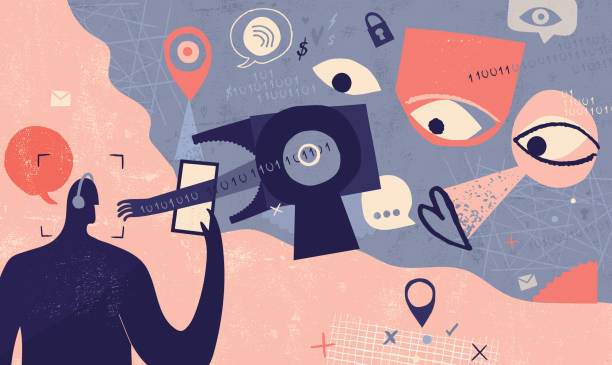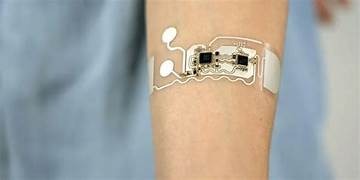
Privacy in Peril: Are Your Gadgets Listening More Than You Think?
In a world increasingly dependent on smart devices, your gadgets might be listening more closely than you realize. Explore the implications of device surveillance and how to protect your privacy in 2025.
✨ Raghav Jain

Introduction: The Growing Concern of Gadget Surveillance
As technology continues to advance, the integration of smart devices into our daily lives has become near-ubiquitous. From smartphones and smart speakers to wearable fitness trackers and smart TVs, our gadgets are constantly listening, recording, and processing data. While this makes for a more seamless, connected experience, it also raises an uncomfortable question: Are your gadgets listening more than you think?
Privacy concerns surrounding smart devices have been on the rise in recent years, as users become more aware of how their data is being collected, used, and, in some cases, exploited. Although these devices offer convenience and enhanced functionality, they can also become a gateway for unauthorized surveillance. In 2025, the scope of data collection has expanded, with more devices than ever before capable of tracking our every move, conversation, and action.
This article explores the reality of device surveillance, how gadgets listen to us, the potential privacy risks, and most importantly, what you can do to protect yourself.
The Rise of Smart Devices: Are We Trading Privacy for Convenience?
Smart devices are a cornerstone of modern life. They provide an unmatched level of convenience, allowing us to control everything from lighting and climate to entertainment and communication with just a voice command or a tap on a screen. However, many of these devices operate by collecting vast amounts of data to improve functionality and predict our needs.
What Makes a Device "Smart"?
At the heart of most smart devices is a combination of sensors, microphones, cameras, and software that are designed to process and respond to user input. For example, smartphones continuously listen for "wake words" like "Hey Siri" or "Ok Google," while smart speakers like Amazon's Alexa and Google Home stay in a constant state of readiness to respond to voice commands.
Other smart devices, such as smart thermostats, wearables, and smart TVs, also collect data. Smart thermostats learn your preferences for temperature control, smart watches monitor your health metrics, and smart TVs track your viewing habits. These data points are valuable for creating personalized experiences, but they also form a rich profile of your habits and preferences.
In some cases, data is processed on the device, but in many others, it is sent to the cloud for further analysis, which can raise concerns about what happens to this data and who has access to it.
Convenience vs. Privacy
The trade-off between convenience and privacy is a significant aspect of the smart device debate. The reality is that many consumers are more than willing to sacrifice a certain level of privacy for the ease of use these devices offer. This raises an important question: Is the convenience worth the potential loss of privacy?
While many companies emphasize that they take privacy seriously and offer features like encrypted communications, the collection of data often happens in ways that consumers don’t fully understand. For example, when you speak to a voice assistant, it might be listening even when you're not actively engaging it. Sometimes, this listening process includes background noise or ambient conversations, which are inadvertently recorded and stored.
How Smart Devices Listen to You: The Technology Behind the Surveillance
To understand the extent of device surveillance, it's crucial to break down how gadgets listen to and collect information from their users.
Microphones: The Ears of Smart Gadgets
The most obvious component of a "listening" device is its microphone. Whether it’s embedded in your smartphone, smart speaker, or even a pair of wireless earbuds, the microphone serves as the primary sensory input for many smart gadgets. These microphones are typically always-on, listening for specific commands or "wake words."
For instance, Amazon Echo and Google Home devices have microphones that are always active, waiting for users to say, "Alexa" or "Hey Google." While these devices are designed to only send data to the cloud when they hear the trigger phrase, they can inadvertently record and store other conversations if they misinterpret background noise as a command.
The Role of AI and Machine Learning in Surveillance
When you interact with your devices, it’s not just the audio that’s being processed. Artificial intelligence (AI) and machine learning algorithms are at the core of many smart devices' ability to understand context, recognize voices, and predict actions.
These AI-driven systems learn from your behavior over time. Smart speakers get better at recognizing your voice and preferences, smartphones learn to predict when you’ll need certain apps, and wearables get more adept at tracking your health metrics. While this predictive power can be convenient, it also means that your devices have collected a substantial amount of personal data, some of which you might not have explicitly consented to share.
Privacy Risks: What Are You Really Sacrificing?
The privacy risks associated with smart devices extend beyond the devices themselves. These risks are compounded by the data collection practices of tech companies, the potential for data breaches, and the lack of transparency in how data is used.
The Data Economy: How Your Information Is Monetized
At the core of the privacy debate is the data economy—the growing industry that thrives on collecting, processing, and selling user data. Smart devices generate a tremendous amount of data about our daily lives, and this data is often sold or shared with third-party companies for marketing, research, or even targeted advertising.
For instance, Google and Amazon collect vast amounts of information through their smart devices. This data is often used to create user profiles, which can then be sold to advertisers or analyzed to improve product offerings. Similarly, social media companies like Facebook and Instagram have been known to collect personal data not just from their own platforms but from other apps and websites, sometimes without explicit consent.
Potential for Data Breaches and Hacking
Another serious concern is the potential for data breaches and hacking. As more of our lives become digitized, the risks associated with storing sensitive data on the cloud become more apparent. Cybercriminals can target smart devices as entry points into larger networks, potentially exposing personal data, such as health metrics, location history, and even voice recordings, to malicious actors.
Examples of data breaches include instances where Alexa recordings were inadvertently shared with third parties or where Nest cameras were compromised by hackers, giving them access to private homes.
The Lack of Transparency in Data Usage
One of the biggest challenges in addressing privacy concerns is the lack of transparency in how companies handle the data collected by smart devices. Many tech companies don’t make it clear how long they retain user data or how they use it once it’s collected. Users are often unaware of the depth of data collection, making it difficult for them to make informed decisions about what they’re willing to trade for convenience.
The Legal Landscape: How Privacy Laws Are Evolving
In response to growing concerns over privacy, governments around the world are beginning to implement stricter regulations regarding data collection, storage, and sharing. However, the legal landscape is still evolving, and it can be difficult for consumers to understand their rights and how to protect themselves.
The GDPR and Its Impact
The General Data Protection Regulation (GDPR), implemented by the European Union in 2018, was one of the first significant pieces of legislation aimed at regulating data collection and usage. The GDPR gives consumers more control over their data, requiring companies to obtain explicit consent before collecting personal information and offering users the right to request the deletion of their data.
In addition, GDPR mandates that companies be transparent about how they use personal data and how long they store it. While the GDPR has made significant strides in protecting consumers, many tech companies continue to push the boundaries of data collection, and enforcement remains a challenge.
US Privacy Laws: The California Consumer Privacy Act (CCPA)
In the United States, the California Consumer Privacy Act (CCPA) gives consumers the right to access, delete, and opt out of the sale of their personal information. However, the lack of a nationwide privacy law means that privacy protections are inconsistent across states, leaving many consumers vulnerable.
Protecting Your Privacy: Steps You Can Take
While it may feel like your gadgets are listening more than you think, there are steps you can take to protect your privacy.
1. Review Your Privacy Settings
Most smart devices allow users to customize privacy settings. For instance, you can disable voice recording features, restrict data sharing, or even delete previous voice interactions from your device's memory. Regularly reviewing and adjusting these settings is an essential step in maintaining your privacy.
2. Use a Virtual Private Network (VPN)
Using a VPN can help mask your location and encrypt your internet traffic, reducing the risk of being tracked online. VPNs are particularly useful when using public Wi-Fi or browsing websites that may collect your data.
3. Turn Off Voice-Activated Features
If you're concerned about constant listening, turning off voice-activated features or muting your devices when they're not in use can help mitigate the risk of unwanted recordings.
4. Regularly Update Device Software
Regular updates are essential for security. Many updates address vulnerabilities that could be exploited by hackers, so ensure that your devices are up-to-date.
The Growing Importance of Device and Data Encryption
As the sophistication of cyberattacks continues to increase, data encryption has become one of the most important layers of protection for sensitive information. Many modern smart devices and services offer encryption technologies that protect your data from unauthorized access.
End-to-End Encryption: Safeguarding Communication
When it comes to communications, end-to-end encryption (E2EE) is one of the best defenses against hackers or third-party surveillance. E2EE ensures that only the intended recipient can read the messages or hear the audio. Popular apps such as WhatsApp and Signal employ end-to-end encryption to protect the privacy of users' conversations.
For smart devices like smartphones, smart speakers, and smart home systems, it's essential to check that the services you're using implement robust encryption. Whether you're sending personal data or interacting with a voice assistant, E2EE guarantees that only you and the person you're communicating with can access the data.
Encrypting Personal Files and Data on Your Devices
In addition to encrypted communication, protecting the files stored on your devices is just as crucial. Smartphones, laptops, and tablets often contain a wealth of personal information that can be compromised if stolen. Many modern operating systems, such as Apple's iOS and macOS or Android devices, offer encryption at the device level. This means that if your device is lost or stolen, the data stored on it is inaccessible without a password or biometric scan.
Encrypting data on your devices ensures that even if your gadgets are listening more than you think, the data they collect is secure. Devices that don’t come with built-in encryption can often be encrypted using third-party software or tools.
The Future of Privacy: What to Expect in 2025 and Beyond
The battle between convenience and privacy is only going to intensify in the coming years. As technology continues to evolve, so too will the sophistication of the devices that collect and process personal data.
AI-Driven Privacy Solutions
One promising trend for the future of privacy is the development of AI-driven privacy solutions. In 2025, AI is expected to become more adept at automatically filtering out personal information during data collection. Smart devices could potentially use AI to better understand user intentions and consent, ensuring that only the data that users explicitly allow is shared with third parties.
Furthermore, AI-powered privacy management tools could offer consumers better control over their data, enabling them to set custom permissions for each device and application. These tools could offer real-time privacy monitoring, alerting users to any suspicious data collection activity happening in the background.
Privacy-Centric Gadgets: A New Market Trend?
In response to growing privacy concerns, we may also see the rise of privacy-centric gadgets. These devices will focus on ensuring user privacy by minimizing data collection and offering enhanced security features. For example, new smart speakers might include a built-in kill switch that allows users to completely disable the microphone at any time, ensuring that their conversations cannot be eavesdropped on.
Additionally, as consumers become more privacy-conscious, companies may shift towards privacy-first business models where the collection of personal data is minimized or even nonexistent. These models would prioritize user consent, transparency, and data protection.
Increased Regulation and Legislation
As privacy concerns continue to mount, governments around the world will likely introduce more stringent privacy regulations to protect citizens. In addition to the GDPR and CCPA, other regions may develop their own privacy laws that place limits on what tech companies can collect, how long they can store data, and how that data is shared.
Countries like the European Union have led the way in establishing comprehensive data protection regulations, and more governments are beginning to follow suit. By 2025, it's possible that many countries will adopt similar laws to ensure user data is properly protected, ensuring that consumers are informed about what is being collected and have more control over their information.
How to Assess and Select Privacy-Conscious Devices
While it may seem daunting, there are steps you can take to assess and select privacy-conscious devices that minimize surveillance.
1. Understand the Company’s Data Collection Practices
Before purchasing any smart device, take the time to research the company’s privacy policies. How do they collect, store, and use your data? Are they transparent about their data-sharing practices? Do they have a track record of maintaining strong security measures? Companies that prioritize user privacy should provide detailed privacy policies and be open about how they use customer data.
2. Look for Devices with Strong Security Features
When purchasing a smart device, ensure it comes with built-in security features. This includes things like multi-factor authentication (MFA), automatic updates, and security patches. Some devices offer the ability to encrypt data locally, ensuring that personal information never leaves your device in an unprotected state. Always opt for devices with robust security protocols in place.
3. Opt for Devices with Minimal Data Collection
Many gadgets come with privacy settings that allow you to limit data collection. Some devices, such as smart speakers, can be configured to only store voice commands for a limited time or to never store voice recordings at all. When purchasing a new device, look for ones that have minimal data collection by design, and make sure they allow you to opt out of data-sharing agreements whenever possible.
How Gadgets Could Change Privacy Forever
Looking ahead to 2025 and beyond, it's clear that privacy in the age of smart devices will be an ongoing battle. Whether through increased transparency, better user control over data, or the rise of privacy-centric tech, there are many ways we can ensure that our personal information remains secure.
As devices continue to learn and adapt to our preferences, the question of privacy will become more complex. In an ideal future, devices could listen to us only when needed, and only share the data we choose to share. However, achieving this balance requires not only technological innovations but also strong regulatory frameworks, transparency from tech companies, and increased consumer awareness of how to protect their personal information.
While your gadgets may be listening more than you think, the future doesn’t have to be one of constant surveillance. By taking proactive steps to protect your privacy and being mindful of the technology you use, you can continue to enjoy the benefits of smart devices without sacrificing your personal security.
Conclusion: Protecting Privacy in a Smart Device-Driven World
As we continue to embrace the convenience and functionality of smart devices, the delicate balance between privacy and connectivity becomes more critical. While the world of technology promises increased efficiency, entertainment, and productivity, it also introduces a range of risks to our personal privacy. The fact that our gadgets—smartphones, voice assistants, wearable devices, and even home appliances—are constantly listening to us can feel unsettling, and rightfully so. They collect vast amounts of data, some of which may be beyond our awareness or consent.
However, this doesn’t mean all hope is lost. The growing awareness of privacy issues has led to advancements in data protection, with improved encryption, AI-driven privacy features, and regulations like GDPR and CCPA offering some security. Consumers are becoming more informed about their data rights and are demanding better privacy controls from companies, pushing tech giants to be more transparent and secure in their data practices.
For individuals, it's crucial to take proactive steps to safeguard privacy. This includes reviewing device settings, utilizing VPNs, disabling unnecessary features, and choosing brands that prioritize data security. Furthermore, the continued evolution of privacy laws and consumer demands for privacy-first technologies will encourage the industry to adopt practices that protect user data more effectively.
Ultimately, while gadgets will continue to listen and collect data, the power lies in how we, as users, engage with these devices and demand accountability. With informed decision-making and ongoing advancements in privacy technologies, we can protect our personal information without sacrificing the benefits of a connected, smart world.
Q&A Section
Q: What is the main concern regarding privacy and smart devices?
A: The main concern is that smart devices, such as voice assistants and smartphones, are constantly listening and collecting data, often without users fully realizing the extent of this surveillance.
Q: How do smart devices collect and store data?
A: Smart devices collect data through sensors, microphones, and cameras, which record conversations, preferences, and actions. This data is then often sent to the cloud for processing and storage.
Q: Are all smart devices always listening?
A: Not all smart devices are always listening, but many, such as smart speakers and smartphones, have microphones that remain active to detect wake words, which means they are technically always listening in the background.
Q: What steps can I take to protect my privacy when using smart devices?
A: To protect privacy, you can adjust the device settings, disable unnecessary features like voice activation, use encryption, and be selective about the data you share with apps and services.
Q: Are there laws to protect my privacy in the smart device world?
A: Yes, laws such as the GDPR in the EU and CCPA in California regulate how companies collect and use personal data. These laws give users more control over their data.
Q: Do smart devices share my data with third parties?
A: In many cases, yes. Some smart device companies share data with third parties for purposes like advertising or product improvement, but transparency about these practices varies by company.
Q: Can hackers access my data through my smart devices?
A: Yes, hackers can potentially access personal data through security vulnerabilities in smart devices. Keeping software updated and using encryption can mitigate this risk.
Q: How do voice assistants like Alexa or Siri listen to conversations?
A: Voice assistants listen for specific trigger words ("Alexa," "Hey Siri") to activate, but they can also inadvertently record conversations if background noise is mistaken for a command.
Q: Are there privacy-friendly alternatives to common smart devices?
A: Yes, some privacy-focused companies, like Librem or Purism, offer alternatives that prioritize security and data protection. These devices minimize data collection and offer more transparency in their privacy policies.
Q: How can AI help protect privacy in the future?
A: AI can help by providing real-time privacy monitoring, automatically filtering personal data during collection, and allowing for more granular control over what information is shared with companies.
Similar Articles
Find more relatable content in similar Articles

Solar-Powered Wearables: Can T..
Solar-powered wearables are re.. Read More

AI in Drug Discovery: Faster C..
Artificial Intelligence is rev.. Read More

Smart Cities: How Technology I..
Smart cities are transforming .. Read More

Wearable Health Sensors: The D..
Wearable health sensors are re.. Read More
Explore Other Categories
Explore many different categories of articles ranging from Gadgets to Security
Smart Devices, Gear & Innovations
Discover in-depth reviews, hands-on experiences, and expert insights on the newest gadgets—from smartphones to smartwatches, headphones, wearables, and everything in between. Stay ahead with the latest in tech gear
Apps That Power Your World
Explore essential mobile and desktop applications across all platforms. From productivity boosters to creative tools, we cover updates, recommendations, and how-tos to make your digital life easier and more efficient.
Tomorrow's Technology, Today's Insights
Dive into the world of emerging technologies, AI breakthroughs, space tech, robotics, and innovations shaping the future. Stay informed on what's next in the evolution of science and technology.
Protecting You in a Digital Age
Learn how to secure your data, protect your privacy, and understand the latest in online threats. We break down complex cybersecurity topics into practical advice for everyday users and professionals alike.
© 2025 Copyrights by rTechnology. All Rights Reserved.